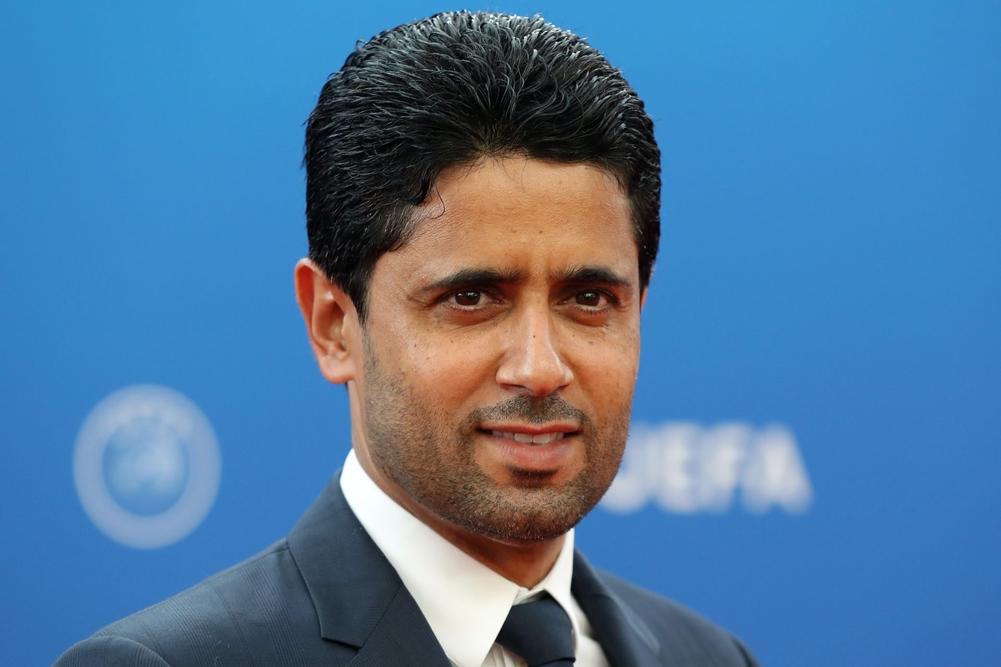beIN Media Group said cyberattacks are a “daily reality”.
Renowned Qatari businessman Nasser Al Khelaifi was among hundreds of public figures, journalists and activists targeted by Israel’s Pegasus spyware, Le Monde reported.
The Paris Saint-Germain chairman and beIN Media Group founder faced cyberattacks in 2018, the report claimed.
Spygate: how the UAE and Saudi are using spyware to silence journalists
“At the end of 2018, foreign agents used the powerful Pegasus software to target two cell numbers” as well as a “landline phone number assigned to the Parisian club’s communications director, Jean-Martial Ribes,” it added.
The report surfaced after a damning investigation identified some 180 journalists across 20 countries that were selected for potential targeting between 2016 and June 2021 using the Pegasus spyware tool.
The investigation, conducted by a media consortium including the Guardian, Le Monde and the Washington Post, probed some 50,000 phone numbers that were linked to individuals who had allegedly been selected for possible surveillance by clients of NSO – the Israeli parent company – since 2016.
The programme enables governments to discreetly hack into mobile phones without knowledge of the user, essentially providing access to crucial information such as messages, location tracking as well as the ability to tap into cameras and microphones.
In a statement, beIN media said cyberattacks are a “daily reality” for the network.
“Malicious hacks and threats to our business and our people are a shocking daily reality for our group,” a spokesperson for Qatar-based network said.
“We have known about the cyberattacks against beIN Sports and its employees by certain entities for years. During this time, beIN has joined with legal advocates and many international organisations to fight against piracy and uphold the rule of law.
“However, the sophisticated attacks against our group’s interests and reputation have also been marked by smear campaigns, commercial sabotage, spurious lawsuits and cyber-attacks against our chairman.
Read also: Microsoft, Google join legal fight against Israeli spyware following Al Jazeera hacking operation
“These are just some of the daily threats against our businesses and our people. These acts are shameful and wholly illegal – it’s not political, often it’s pure commercial espionage against beIN. The relevant authorities should ensure that the complete lawlessness of these rogue actors is held to account.”
The network fell short of pointing fingers at a direct entity or government, however the hacking of Al-Khelaifi’s phone appears to have taken place amid a Gulf crisis that saw Saudi Arabia, the United Arab Emirates, Bahrain and Egypt sever all diplomatic ties with Qatar and impose an illegal air, land and sea blockade on the country.
That crisis ended just months ago in January after all parties involved signed the Al Ula accord to end the rift and resume diplomatic ties.
However, during the crisis, both Qatar and Saudi Arabia faced heightened tensions over broadcasting rights, with both countries facing off in court over piracy claims.
Qatar’s beIN filed a lawsuit against Saudi Arabia for failing to shut down the pirate beoutQ sports channel that stole and illegally streamed its feed across the region.
In a landmark move last year, the World Trade Organisation said the Saudi kingdom had violated international law protecting intellectual property by actively promoting and supporting beoutQ.
Follow Doha News on Twitter, Instagram, Facebook and Youtube







